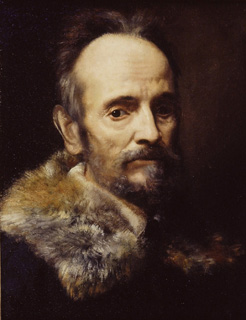| Profile | Major Works | Resources |
Bernardo Davanzati, 1529-1606.
16th Century Florentine merchant and historian, Bernardo Davanzati is renowned for his translations of Tacitus and his strong opposition to the Reformation.
He was descended from the Bostichi, a powerful Guelf family of Florence.
Bernardo Davanzati's 1582 account of the mechanism of "bills of exchange" was a classic depiction of the international exchange mechanism. But it his 1588 discourse on coinage that Davanzati had his greatest performance. Davanzati distinguished "value-in-exchange" from "value-in-use", identifying the "paradox of value" in the process. He noted that gold has no "value-in-use" but great "value-in-exchange". This was because, he argued, the value of gold rests purely on what can be had in the useful things that are exchanged for it. Commodities are "valuable" because of their use. But gold is valuable because it can command commodities.
Davanzati also forwarded a "metallist" theory of money, arguing that coins circulate according to the value of their precious metal content. He was perhaps the first to expound the "choice-theoretic" thesis on the origins of money, later made famous by Carl Menger. Davanzati also noted that the degree of "scarcity" of precious metals affects its value relative to commodities -- thus we can regard Davanzati as one of the forefathers of the Quantity Theory of Money.
Davanzati's performance can be regarded as the true beginning of the "Italian tradition" in political economy. A century later, Geminiano Montanari (1683) would restate the metallist thesis. And a further century after that, Ferdinando Galiani (1751) would resurrect Davanzati's notion of "use-value" to begin the construction of a subjective theory of value.
|
Major Works of Bernardo Davanzati
|
|
HET
|
|
Resources on Bernardo Davanzati
|
All rights reserved, Gonšalo L. Fonseca

